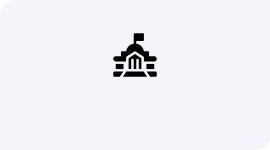
The President of the Republic of Uzbekistan, Shavkat Mirziyoyev, has chaired a meeting devoted to priority works in the spheres of construction, housing and utilities, transport, and ecology. The meeting also analyzed current issues in the field of ecology.
In particular, it was noted that some enterprises in the regions have been using dust and gas cleaning equipment for more than 10 years. It was also criticized that, even though many incentives have been given to industrial companies, some do not even consider protecting the environment. It was noted that, in most cases, construction sites and projects are implemented without environmental expertise.
For information, since 2020, 22 thousand new industrial enterprises have been launched in the regions, and almost 250 thousand new housing facilities have been built. Today, more than 2 million tons of pollutants are emitted into the atmosphere from industrial enterprises and cars. Most of all, in the city of Tashkent and the cities of Almalyk, Nurafshon, Akhangaran, Angren, Bekabad, and Kuvasai, the amount of pollutants in the air is significantly higher than in other regions.
Taking into account the above circumstances, our Head of State has given several directives to improve the environmental situation. These include:
— From 1 April, each region will be rated in terms of air, water and environmental pollution;
— A "master plan" to improve the local environment will be drawn up for each district and town;
— At the end of the year, the regions' environmental rankings and passports will be published. Hokims will inform the population about the results;
— Automatic air monitoring stations will be installed in Tashkent, Nukus, regional centers and 20 industrial districts;
— 112 large industrial enterprises and all cement producers will install modern dust and gas cleaning equipment by the end of the year. Filters will also be replaced in enterprises with high dust emissions into the air.
In addition, special attention will be paid to the creation of "green belts". In particular:
— Large enterprises in construction materials, energy, and metallurgy will create a "green belt" of 5 hectares and a total of 10 million trees will be planted;
— Construction companies will organize "green belts" in Tashkent as part of their social responsibility;
— A system of "planting 100 saplings for every illegally felled tree" will be introduced;
— Green gardens will be created on 23 hectares of former garbage dumps in Ahangaran and 37 hectares in Yangiyul;
— at least 3,000 hectares of "green belts" and 200 hectares of "green parks" will be created in Tashkent and neighboring districts of the Tashkent region over the next five years.
At the same time, a separate program will be implemented to work with enterprises dumping harmful waste into water and the environment.
In addition, to prevent emissions into the atmosphere:
— Signs and monitors providing air quality data will be installed on the streets of the capital;
— Specific mechanisms will be developed in the capital to reduce the environmental impact of heavy-duty vehicles, cars older than 10 years, and fuel use below the Euro-4 standard;
— Starting from 2025, Ai-80 petrol will be abandoned in the Republic.
It is worth mentioning that during the visit of the head of state to China, an agreement on cooperation in the field of environmental protection was signed with the government of the People's Republic of China. As a result, an agreement was reached to increase the production of electric cars to 500 thousand.
It was noted at the meeting that traffic jams have a negative impact on air quality. Therefore, it was decided to accelerate the development of public transport. In particular, it was noted that it is now necessary to pay more attention to their passenger capacity when buying buses to accelerate practical measures to increase the number of metro cars. Also, to support "green energy," prevent environmental problems, and reduce harmful effects, a system will be introduced to incentivize people to switch to electric cars.
It should be noted that in recent years, our head of state has implemented several effective measures in the fields of ecology, environmental protection, and climate change. In particular, decisions and resolutions have been adopted on reducing the negative impact of waste on the environment, developing eco-tourism, stopping the extraction of sand and gravel mixtures, improving a safe transport system for the population and environment, etc. Undoubtedly, these successive reforms will be of great significance for the protection of our country's ecology.











